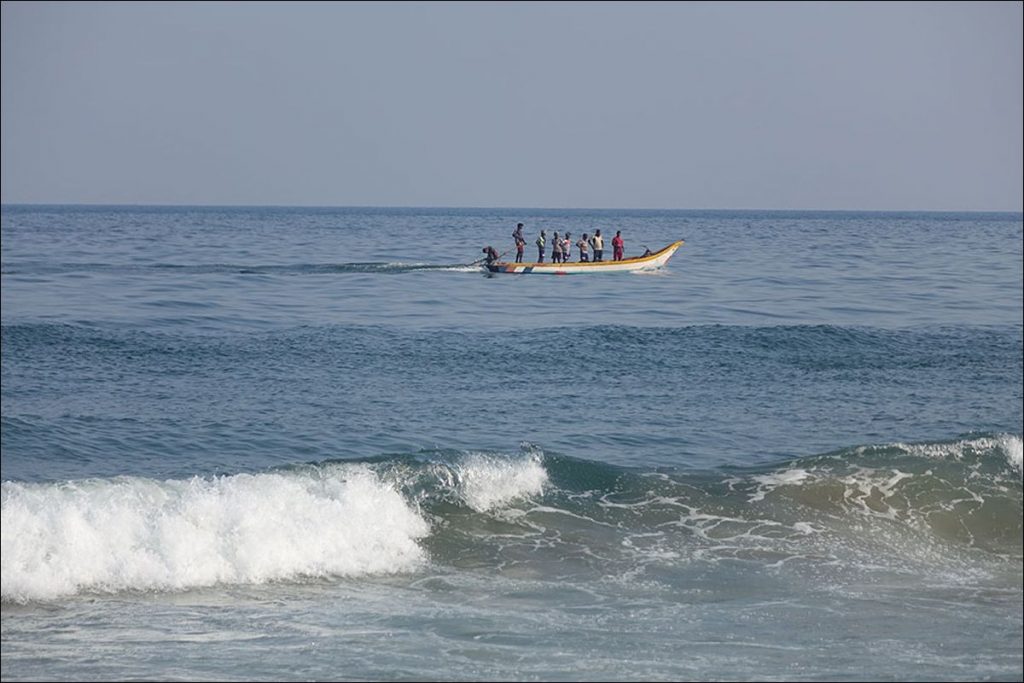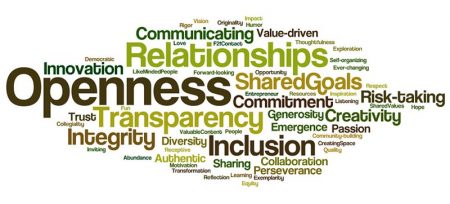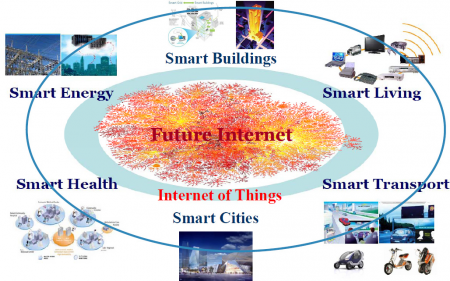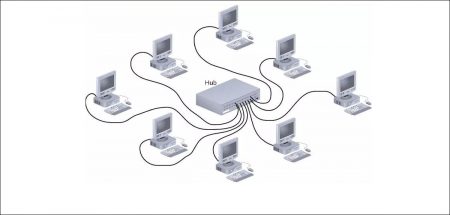IoT is saving fishermen at sea and giving farmers daily updates about the nutritional status of their land. Angira Agrawal of Skylo Technologies speaks to sify.com on how narrowband IoT is enabling traditionally ‘analog’ industries and governments to digitize operations
Angira Agrawal is COO of Skylo Technologies, the world’s first company that connects end-to-end machine and sensor data via satellite. In a career spanning 24 years, Angira has brought disruptive transformation to businesses through constant innovation, strategic insights and seamless execution. In an exclusive interview to Prasanna Kr. Srivastava, Angira Agrawal speaks on how narrowband IoT is enabling traditionally ‘analog’ industries and governments to digitize operations. Excerpts from the interview:
Tell us about Skylo’s India vision and journey so far
Skylo is driven by the ability to make smart, immediate decisions powered by data transmitting from machines and sensors, everywhere. Skylo enables traditionally ‘analog’ industries and governments to digitize operations, increase employee and operational safety, and ultimately increase profitability, through machine and sensor visibility.
We formally launched our satellite-based solution in India in December 2020 as a recognized government partner through our partnership with BSNL, India’s government-owned telecommunications provider. We connect millions of sensors and machines, so that business owners can understand, manage, and predict what is happening with their assets located anywhere in the country.
Imagine fishing boats that now can sell their catch while at sea, thus improving profitability by 30-50%. They can send an SOS signal during a distress situation. Smart farming equipment notifies farmers of soil’s nutritional status on a real-time basis, helping the farmers take steps to improve yield and productivity. Imagine trucks that provide early warnings before overheating and causing a critical delay in delivery. Or government workers who can get instant alerts and pre-emptive information about natural disasters such as fires and floods. And all of this happening no matter where the fishing boat, the farming equipment, the truck, or the weather monitoring equipment is located.
Skylo’s end-to-end connectivity solution also has the potential to support India’s plans for continuously and securely monitoring the logistics associated with the COVID-19 vaccine, Liquified Medical Oxygen, and other life-saving supplies.
Skylo serves customers across public and private sectors in logistics, agriculture, maritime, healthcare, defense, among others, on land and in the surrounding seas.
What is the USP of your Satellite NB-IoT offering?
Existing cellular networks are designed to connect people. Machines require a different kind of network, one that operates reliably even in the 80 percent of geographies that are sparsely unpopulated or, like the ocean, entirely unconnected. Satellites are needed to offer broad coverage, and narrowband IoT (NB-IoT) is needed to handle low power, low bandwidth data traffic.
NB-IoT is a wireless communication standard for low power wide area networking (LPWAN) technology developed to enable a wide range of new IoT devices and services. NB-IoT provides significantly improved communications between machines while lowering device power consumption and data throughput needs. NB-IoT creates new connected business models for traditionally ‘analog’ industries such as fisheries, agriculture, and logistics/supply chain enabling a digital multiplier effect on the Indian economy.
Our USP lies in making the solution affordable, accessible, and ubiquitous.
Skylo’s full-stack end-to-end solution — consisting of the Skylo Hub, Skylo Connect & Skylo Apps — works together to connect the world’s machine data so critical information can be communicated anywhere on earth.
Skylo helps people and businesses benefit from secure, 2-way data connectivity through the Skylo Hub, a rugged modem-sized device that transmits sensor data via Skylo Connect, our always-on satellite network that provides real-time communications even when there is no cell coverage. Customers can manage their operations from the palm of their hand using Skylo Apps, available on mobile or web, giving teams the ability to take immediate action. For organizations having existing applications or platforms, Skylo offers easy-to-use APIs allowing businesses to integrate critical data streams.
How much does this technology cost and who are your partners in India?
Skylo costs 95% less than any solutions offering ubiquitous IoT connectivity — and is the first company to leverage the NB-IoT protocol for satellite communications. For less than a cup of ‘chai’ per day, customers can get 100%, always-on connectivity anywhere under the sky.
Since our launch in December 2020, we have been working with BSNL and its customers across India. In February 2021, Skylo and Beetel partnered to rapidly scale the adoption of end-to-end IoT solutions across India. Beetel provides sales, customer support, and product fulfillment to support Skylo’s fast-growing customer progress. We recently announced a partnership with Inmarsat. We announced our partnership with Omnicomm for fuel sensors, which helps logistics companies monitor fuel levels anywhere in the country, reducing operational costs. Also announced recently, Softbank will work with Skylo to offer satellite-based IoT to Japanese customers.
What is the ROI period and where have you implemented this in India?
IoT is playing a pivotal role in India’s digitalization story. It is estimated that the IoT investments in India will triple, to touch ~USD 15 Billion this year by 2021 across both technology products and services components.
Skylo’s NB IoT solution has been deployed in Indian hinterlands and Exclusive Economic Zones and high seas where cellular networks fail or are not available. By getting 100% access to data, no matter where the machine is, businesses can make even more effective decisions, thus driving higher productivity, yield and efficiency. Fishermen can save anywhere between 30-50% of their catch by selling them remotely at sea, thus increasing their earnings from every trip.
- Skylo has received particularly encouraging responses from fishermen for whom the technology has been a saving grace. Last year, seven fishermen aboard a small fishing boat were saved. A nearby boat equipped with Skylo’s 2-way communication technology was able to raise an alarm with the boat owner and the Maharashtra Coastal Security when their boat was destroyed and sank.
- We recently introduced our Skylo Fish Catch Reporting App – the world’s first mobile communications solution, allowing fishermen to easily update and send details of their catch by initiating the selling process while they are still hundreds of nautical miles out at sea, giving them the opportunity to secure the best prices for their catch and increase earnings.
- Individual fishermen across Pondicherry, Karnataka, Andaman & Nicobar are excited about their increased earnings, and we are also actively working with State Governments and Fishermen Cooperatives and Associations for creating awareness about the benefits of Skylo.
- We have partnered with India’s National Federation of Fishers Cooperatives Ltd. (FISHCOPFED), the apex institution of the Indian Fisheries Cooperative Movement, to deliver our IoT-based solutions to marine fishing and aquaculture sectors, including monitoring oxygen and pH levels of water in ponds across the states (aquaculture and inland fisheries) and enhancing fish yields and profitability for the fish farmers.
- Skylo is helping the Government and various industries monitor critical operations, especially in remote areas. Recently, ONGC Tripura deployed Skylo for improved control over their vehicles and goods, faster response to emergencies with SOS alerts, and better safety of the drivers, and at the same time efficient utilization of vehicles, route optimization, and real-time demand and delivery insights.
What challenges have you encountered while implementing this technology?
The word “satellite” conjures up images of something quite expensive, meant for the highly technologically advanced users, and difficult to deploy and integrate. Removing these perceptions about costs and deployment for satellite-based IoT solutions is where we are creating awareness. In addition, being able to reach customers and serve use cases across every region, especially those who are not connected on a regular basis, is also something we are solving, engaging with distribution and SI partners, and even directly.
Our priority is to help organizations find tremendous value through our solution. Especially post-pandemic, as people adopt remote asset management, connectivity has become crucial across the globe.
Where do you see Skylo two years down the line in India?
We believe we can become the de-facto standard for space-based IoT solutions. We’ll continue to advance our solution to meet customer needs, and we will continuously add important features, akin to our fish catch reporting app, equipment rental app, and others. We see the adoption over the last 6 months resulting in a transformative change in the way Digital India connects machines and sensors and uses the 100% available data to make decisions that benefit businesses and the economy.
Sify
Responses to be attributed to Angira Agrawal, COO Skylo.
In case you missed:
- None Found










1 Comment
Thank you for sharing the information about India’s fishermen and farmers, it is good article, keep sharing.